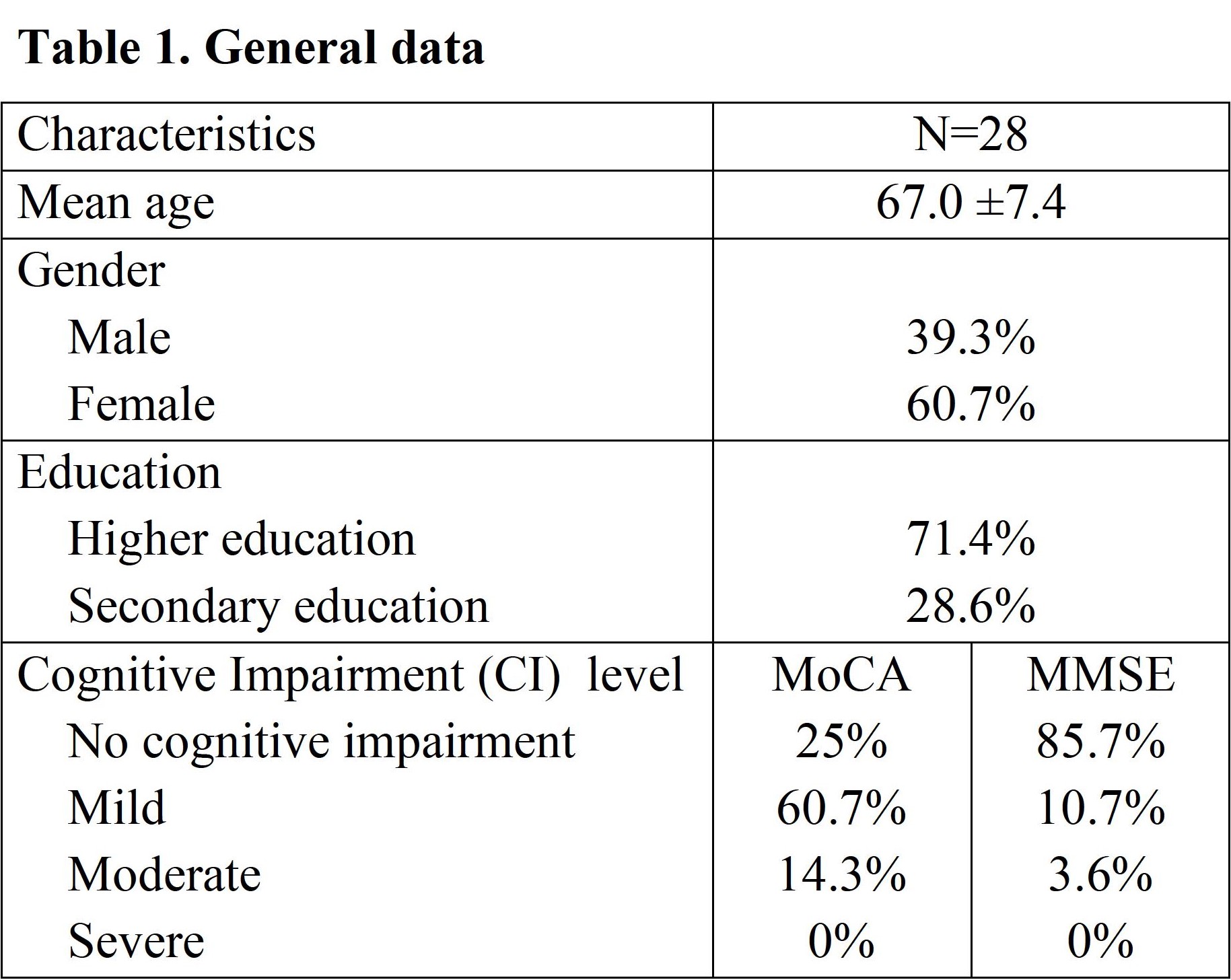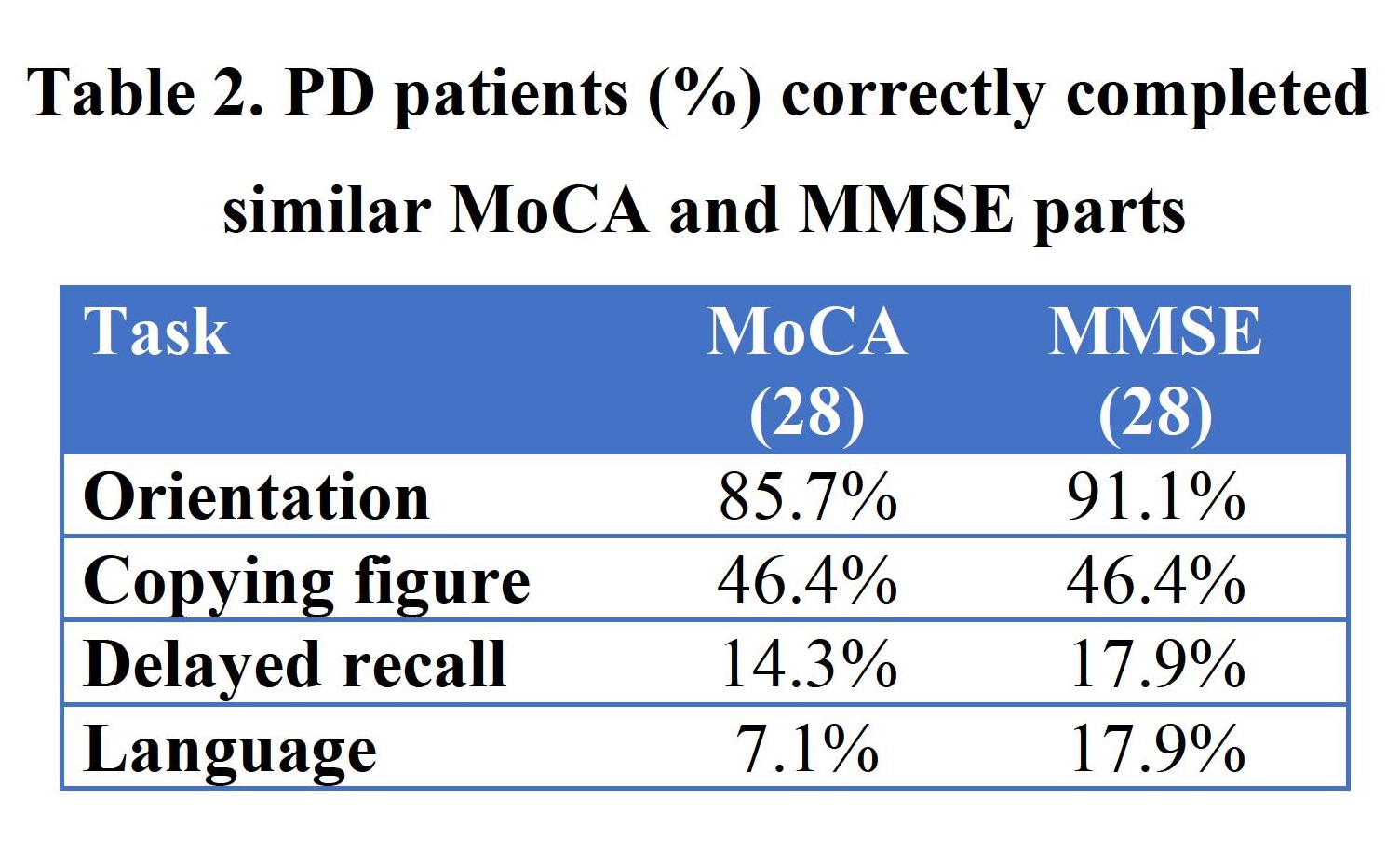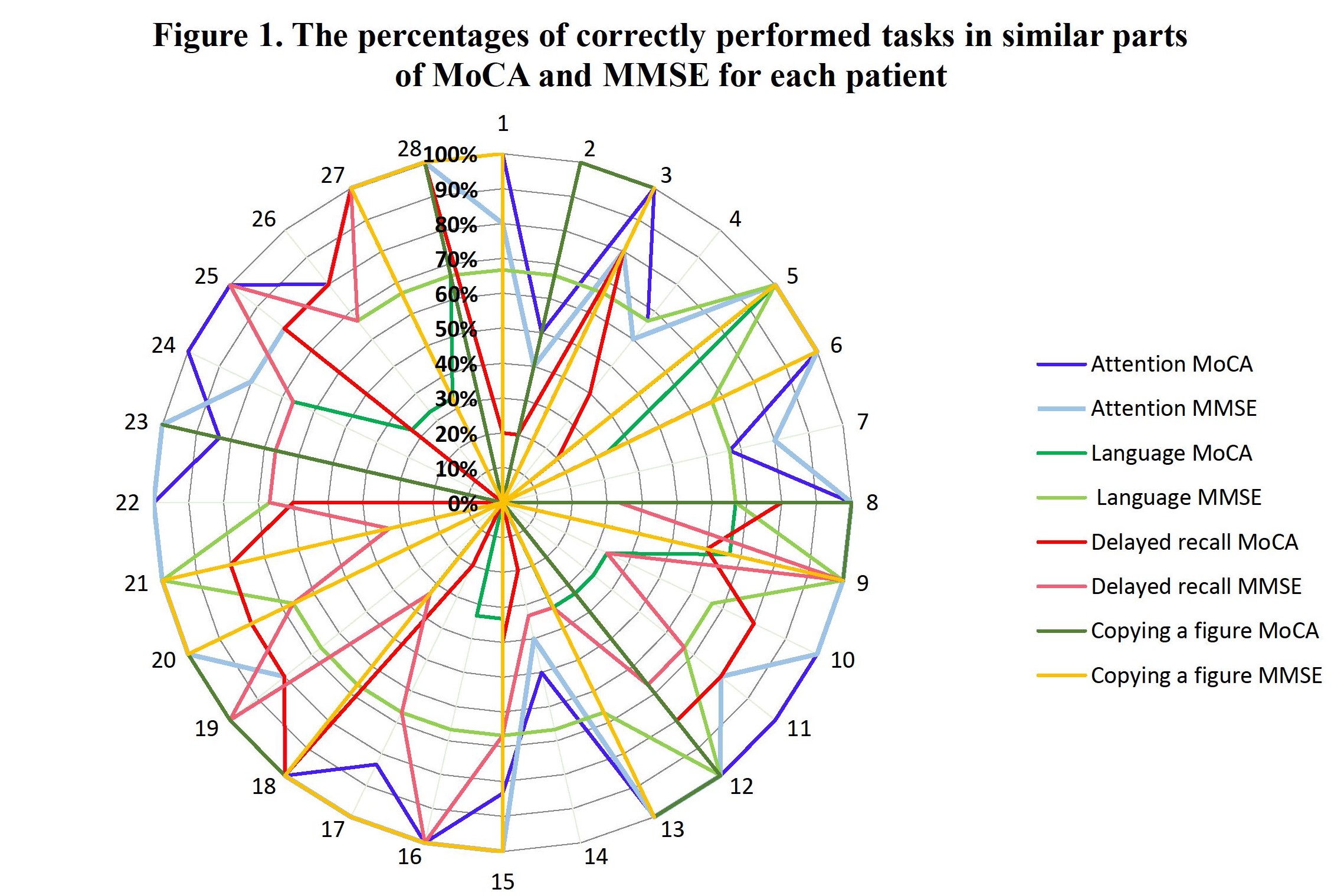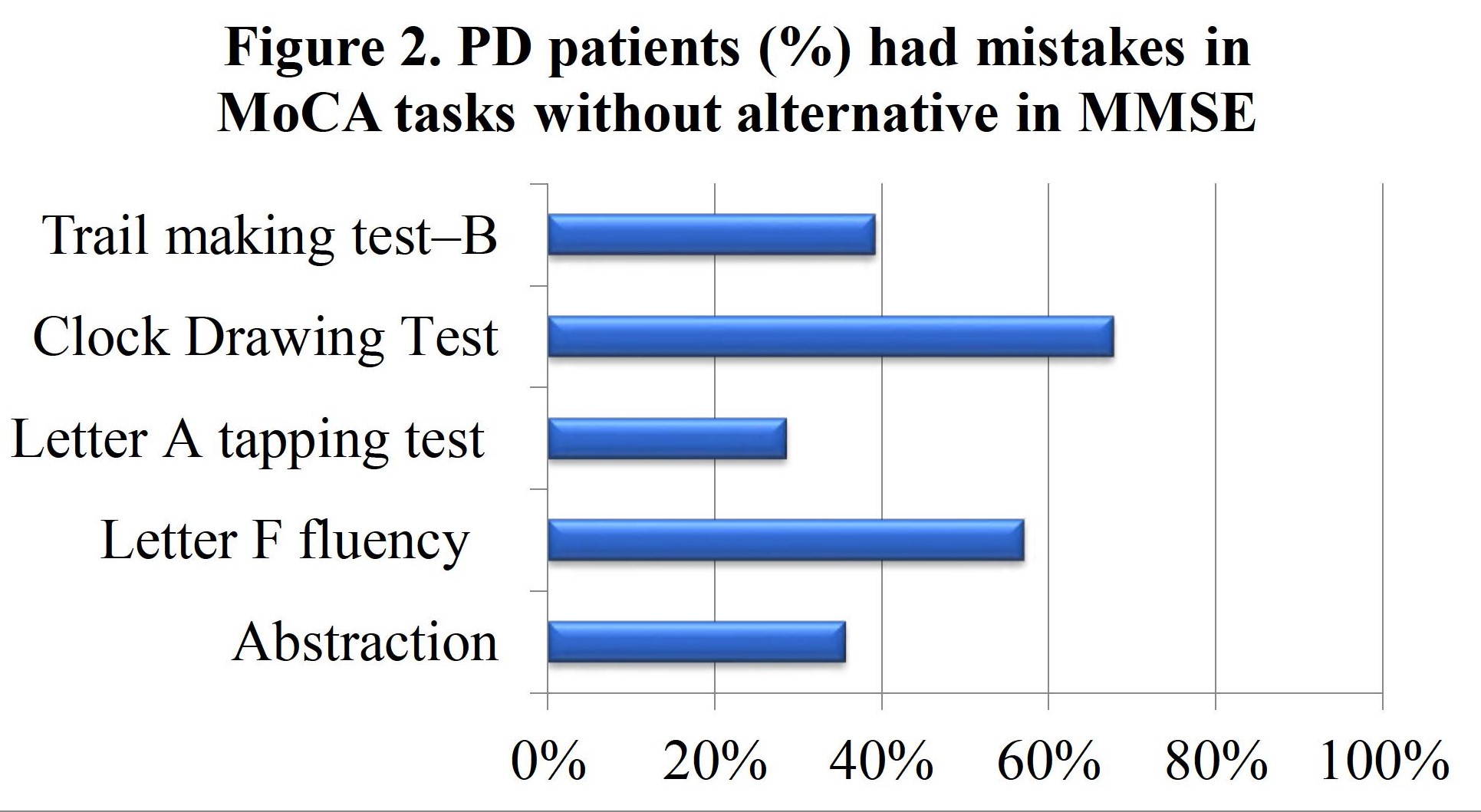Category: Parkinson's Disease: Cognitive functions
Objective: The aim of this study was to determine differences between Montreal Cognitive Assessment (MoCA) and Mini-Mental State Examination (MMSE) in PD patients from Kyrgyzstan.
Background: MoCA and MMSE are frequently used scales for evaluation of cognitive impairment (CI) in PD patients. Previously, there was no study conducted to compare differences between these screening tools in PD patients in Central Asia.
Method: This study was conducted among PD patients of an outpatient movement disorders clinic in Bishkek, Kyrgyzstan, within a 2-month period. 28 Russian-speaking PD patients were included in this study. MoCA and MMSE were performed during the regular visit to movement disorders specialist. The average time of completion of both scales for each “ON” state patient was about 20 minutes.
Results: The mean age of respondents was 67.0 ±7.4 years. 71.4% of PD patients had higher education, whereas 28.6% – secondary. 78.6% of patients were bilingual, fluent in Kyrgyz and Russian languages, 21.4% spoke only Russian language. Many bilingual patients (19 of 22) needed longer time for tests completion.
Mean MoCA and MMSE scores were 22.43 ± 4.1 and 25.89 ± 2.2, respectively. 85.7% of patients had no CI according to MMSE, whereas MoCA revealed normal scores only in 25% of patients. Data is provided in [table 1].
In similar tasks from both scales, most of the common errors were related to language and delayed recall parts. 7.1% of all PD patients by MoCA and 17.9% by MMSE correctly performed language part tasks. The delayed recall was successfully completed by 14.3% of patients according to MoCA and 17.9% to MMSE. Data is indicated in [table 2].
Detailed evaluation of each PD patient’s MoCA and MMSE showed differences in similar tasks. In the Language part most of respondents had lower scores according to MoCA. [Figure 1] demonstrates correctly performed tasks for similar parts of both scales for each of 28 patients.
For the MoCA tasks without alternatives in MMSE, patients had definite errors, mostly in the clock drawing test. Data is revealed in [figure 2].
Conclusion: According to the MoCA cognitive impairment was identified in a higher number of PD patients compared to MMSE. MoCA provides an opportunity to evaluate a broader range of cognitive domains. In addition, there is an urgent need for officially translated cognitive assessment tools in the Kyrgyz language for further use to avoid language associated errors.
To cite this abstract in AMA style:
E. Zhunusova, C. Shambetova, A. Il'Yazova. Differences between two cognitive assessment instruments used in Parkinson’s disease in Kyrgyzstan [abstract]. Mov Disord. 2022; 37 (suppl 2). https://www.mdsabstracts.org/abstract/differences-between-two-cognitive-assessment-instruments-used-in-parkinsons-disease-in-kyrgyzstan/. Accessed February 12, 2026.« Back to 2022 International Congress
MDS Abstracts - https://www.mdsabstracts.org/abstract/differences-between-two-cognitive-assessment-instruments-used-in-parkinsons-disease-in-kyrgyzstan/




